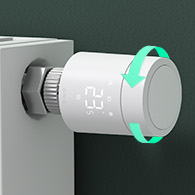Originally we had a back boiler which has been ripped out and a wood burning stove installed in its place. The system was full of black sludge.
I have, Replaced all of the radiators with new including TRVs.
Flushed out the copper pipes of the system prior to the connection of the new rads.
The new boiler has not yet been fitted as I am not yet decided as to what combi to have installed?
I now want to fill the system up with mains pressure water to test for leaks.
If I pressure the system up and there are any leaks the first thing that will escape will be air so I assume soap solution is as good a system as any to test for leaks on joints and rad connections?
However if water does get into the rads this could cause rust?
Is it better to fill and bleed the rads, leaving the water in, as once air enters will this not accelerate rusting?
Any advice on testing rads?
I have, Replaced all of the radiators with new including TRVs.
Flushed out the copper pipes of the system prior to the connection of the new rads.
The new boiler has not yet been fitted as I am not yet decided as to what combi to have installed?
I now want to fill the system up with mains pressure water to test for leaks.
If I pressure the system up and there are any leaks the first thing that will escape will be air so I assume soap solution is as good a system as any to test for leaks on joints and rad connections?
However if water does get into the rads this could cause rust?
Is it better to fill and bleed the rads, leaving the water in, as once air enters will this not accelerate rusting?
Any advice on testing rads?


